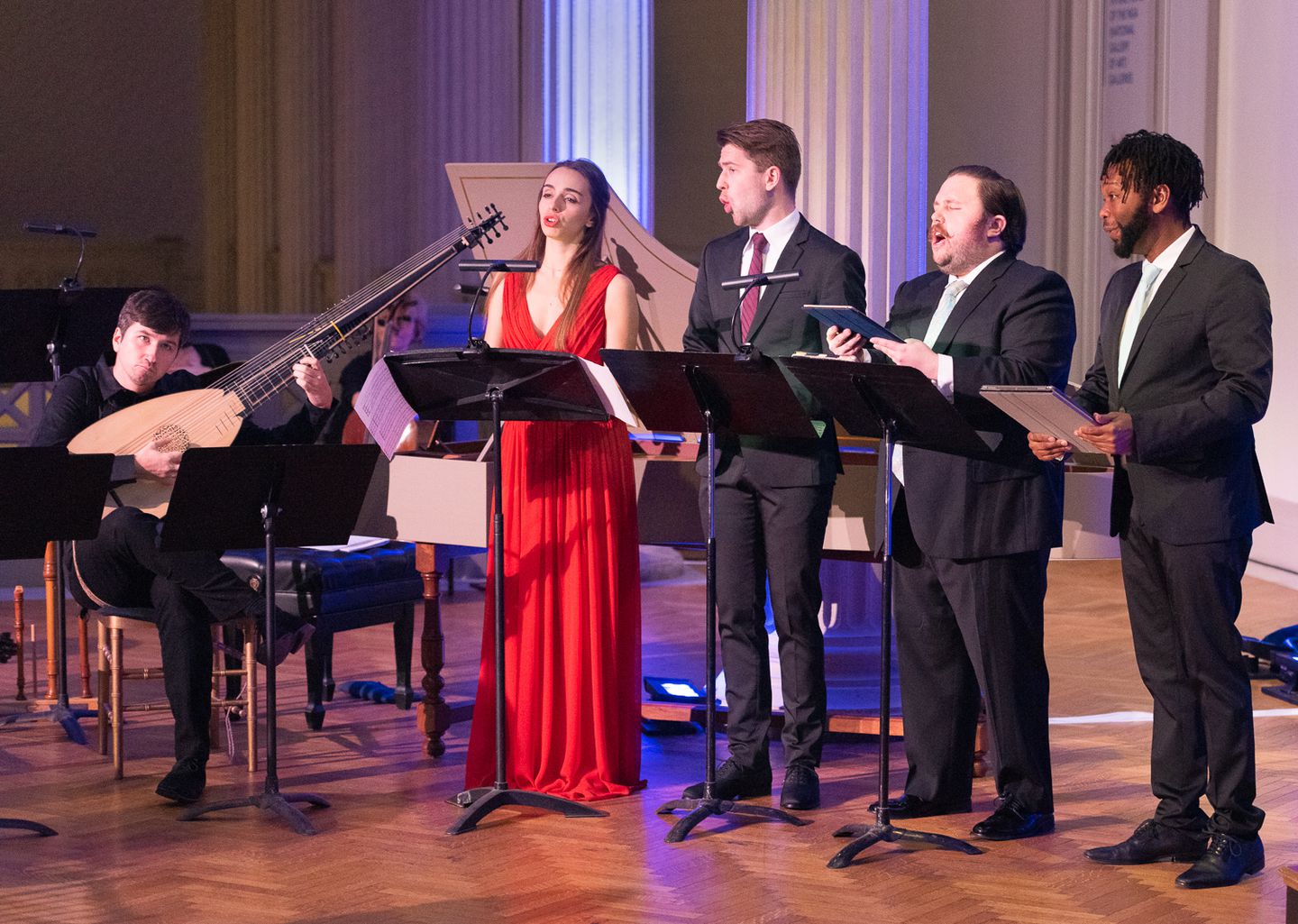Originally published on The Washington Post, November 22, 2019. By Matthew Gerrieri
Besides being a fine evening’s entertainment, Opera Lafayette’s performance of John Blow’s “Venus and Adonis” on Thursday at the Corcoran School of the Arts was an opportunity to consider how far political sycophancy has fallen. These days, anyone who wants to pander to a regime goes on cable news or tries congressional hearing-room histrionics. In Blow’s day, though, this kind of thing could be done with real skill. In the case of “Venus and Adonis,” written as a divertissement for Charles II’s court, it yielded the first through-composed English opera. The piece’s flair was an appropriate launch for the company’s 25th-anniversary season; its musical depth lingered.
A mini-cabaret prologue, with works by John Dowland and Blow’s student Henry Purcell, set the mood. Mezzo-soprano Lea Desandre, countertenor Daniel Moody, tenor Patrick Kilbride and bass-baritone Jonathan Woody amplified the pleas of Dowland’s “Come Again,” and Desandre elegantly delineated two more Dowland songs around lutenist Thomas Dunford’s long, intricate interlude. Dunford, cellist Loretta O’Sullivan and harpsichordist Violaine Cochard then backed Desandre and Moody in three Purcell airs, establishing the evening’s essential sound — silvery vocal clarity blooming over elaborate instrumental buzz.
“Venus and Adonis” spins a variation on the old myth. The goddess of love sends Adonis out to join the hunt, banters with her son Cupid, then mourns when her lover returns, fatally gored by a boar, to die in her arms. Anne Kingsmill Finch’s libretto spryly comments on the easygoing Restoration hedonism of Charles’s court with 17th-century insider jokes that director Julia Bengtsson has reinterpreted as generic, winking irony. A pair of dancers in period dress (Bengtsson and Matthew Ting) mingled with singers wryly assuming classical attitudes in modern gowns and suits.
Finch’s text is breezy and playful; Blow’s music is glorious — one extravagance after another. Dunford led a nine-piece orchestra (including, on violin, Opera Lafayette’s founder and artistic director, Ryan Brown) in a grounded, lavishly ornamented interpretation. Moody, Kilbride and Woody, joined by soprano Véronique Filloux, gave the choruses vocal lilt matching the musicians’ bounce. As Cupid, soprano Sarah Shafer started out almost too light but settled into a present, clear sound. The title characters offered the most robust singing — Desandre’s Venus spinning long, ringing lines and bass-baritone Douglas Williams’s Adonis responding with resonant swagger.
Shifting abruptly from droll to tragic, the performance was faithful to a work that feels operatic almost in spite of itself. In the final scene, both music and musicmaking conjured pathos and gravity the text doesn’t really earn. Maybe that’s why operas no longer so effusively flatter power: They tend to reveal truth even when they’re not supposed to.


